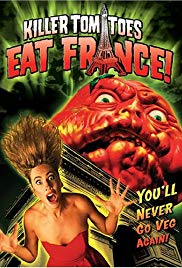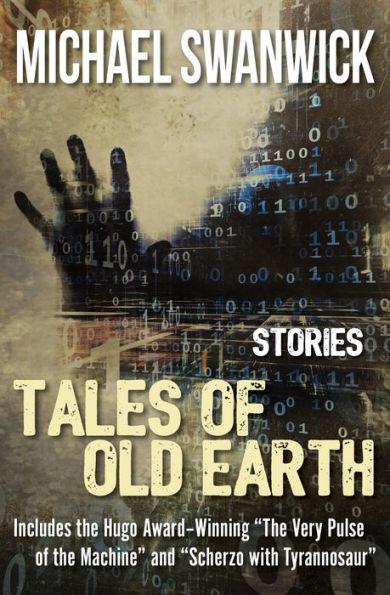(1) OUT OF THE BAG. Spies in Disguise just had a “super-secret” drop.
Super spy Lance Sterling (Will Smith) and scientist Walter Beckett (Tom Holland) are almost exact opposites. Lance is smooth, suave and debonair. Walter is … not. But when events take an unexpected turn, this unlikely duo are forced to team up for the ultimate mission that will require an almost impossible disguise – transforming Lance into the brave, fierce, majestic… pigeon. Walter and Lance suddenly have to work as a team, or the whole world is in peril. “Spies in Disguise” flies into theaters this Christmas.
(2) BOOMER DOOM. John Scalzi speaks sooth in “Reader Request Week 2019 #2: The War Between the Generations”.
…The special sauce of this particular moment of generational conflict is that it involves the Baby Boomers for the first time being the antagonists of the generational story, rather than either the protagonists or the somewhat neutral mainstream. The Boomers are now the older generation and are having a moment being seen as the ossified and inflexible group whose opinion is not worth considering, and they don’t appear to like it at all. There is the (some would say delicious) irony of the generation that famously professed it would never trust anyone over 30 having become the generation that those under 30 allegedly doesn’t trust. I’m pretty sure the Boomers don’t appreciate that irony at all.
(3) ON THE BLOCK. Time Out discusses auctions of collectibles from the Happiest Place on Earth in “A History of Disneyland & Walt Disney World”.
Since first being approached by one man and his collection of Disneyland materials about five years ago, gallery co-founder Mike Van Eaton has become a go-to figure for these auctions. He estimates that he sells about 98% of the stock each auction, so it’s no surprise that prolific collectors and former parks employees keep approaching him to offer relics on consignment. Those relationships are part of how he verifies the pieces’ provenance; he’ll consult with Disney Imagineers to separate the fan-made items from the park-used ones, and he’ll use the plausibility of their backstories to suss out how one It’s a Small World doll is from the Florida version of the ride, while another is clearly from a promotional storefront activation in New York (the use of electric parts instead of pneumatic was the tip-off). Others are more directly verifiable, like when a former county assessor dropped off official plans he’d overseen for the railroad that Walt Disney built in his Holmby Hills backyard.
(4) I’M BAAACK! Hollywood Collectibles will let you have this sweetheart for only $1,599. Easy payment plan available!
This stunning life-size wall display pays homage to the terrifying Alien Queen’s iconic battle with Ripley, in the climatic scenes of Aliens.
(5) ETCHISON MEMORIAL. Dennis Etchison’s memorial marker, “paid for by a long-term friend of his who wishes to remain anonymous,” is now in place at Pierce Brothers, Westwood Village. It’s marker #127 on the ‘Cenotaph’ wall, (quite near the graves of Ray and Maggie Bradbury).

(6) LE GUIN ON UK SCREENS. Another chance to see the BBC4 TV documentary “The Worlds of Ursula K. Le Guin” which also has contributions from Margret Atwood and Neil Gaiman. The link only works in the UK – which will be fine for some of you.
(7) TIMING IS EVERYTHING. ScienceAlert says “NASA Has Detected Weird Orbital Movement From Two of Neptune’s Moons”.
The two moons in question are Naiad and Thalassa, both around 100 kilometres or 62 miles wide, which race around their planet in what NASA researchers are calling a “dance of avoidance”.
Compared with Thalassa, Naiad’s orbit is tilted by about five degrees – it spends half of its time above Thalassa and half of it below, in a linked orbit that’s unlike anything else on record.
“We refer to this repeating pattern as a resonance,” says physicist Marina Brozovic, from the NASA Jet Propulsion Laboratory. “There are many different types of dances that planets, moons and asteroids can follow, but this one has never been seen before.”
The two small moons’ orbits are only around 1,850 kilometres (1,150 miles) apart, but they are perfectly timed and choreographed to keep avoiding each other. Naiad takes seven hours to circle Neptune, while Thalassa takes seven and a half on the outside track.
(8) INFLUENCER RULES. Pirated Thoughts provides a reader update: “Explaining the FTC’s New Social Media Influencer Sponsorship Disclosure Rules”.
When to Disclose
Influencers must disclose when they have any financial, employment, personal, or family relationship with a brand. If given free or discounted products, an Influencer is required to disclose this information even if they were not asked to mention that product. The FTC reminds Influencers that even wearing tags or pins that show favorability towards a company can be considered endorsements of said company. However, if you simply enjoy a product and want to talk about the product, you are not required to declare that you don’t have a relationship with that brand. Lastly, even if these posts are made from abroad, U.S. law will still apply if it is reasonably foreseeable that the post will affect U.S. consumers.
(9) BIG TROUBLE. Galactic Journey’s Jessica Holmes is tuned in for the latest (55 years ago) doctoral thesis: [November 17, 1964] A Continuing Adventure In Space And Time (Doctor Who: Planet Of Giants).
PLANET OF GIANTS
AWOOOGA, AWOOOGA. We’re barely a minute in and already things are going wrong aboard the good ship TARDIS. As the Doctor brings her in to land, the doors start opening by themselves. Fortunately, the companions manage to get them closed and they land safely. Or do they? The Doctor is very agitated about the doors opening, but doesn’t do a good job of explaining what it is that’s bothering him. Something strange is afoot, that’s for sure.
(10) WHO CLUES. Mirror UK is in tune with the series’ more current events: “Doctor Who series 12 release date, cast, episodes, plot for Jodie Whittaker return”. Lots of hints, like this one:
Doctor Who series 12 release date
Doctor Who series 12 is due to air in very early 2020.
However, fans should keep an eye out for something on November 23 2019 , according to a recent BBC teaser.
There have been rumours of a surprise Christmas Special for December 25, 2019, but this will likely air in 2020 instead.
(11) DEEP THOUGHTS ABOUT STAR WARS. [Item by Olav Rokne.] Film blogger Darren Mooney has offered some pretty awesome analysis of Star Wars on Twitter. Thread starts here. Some highlights:
(12) TODAY IN HISTORY.
- November 18, 1928 — Steamboat Willie, was released featuring Mickey Mouse.
- November 18, 1959 — The Incredible Petrified World enjoyed its very first theatrical screening for residents of Burlington, North Carolina.
- November 18, 1992 — Killer Tomatoes Eat France! premiered in the U.S. home video marketplace. Written and directed by John De Bello, it starredJohn Astin, Marc Price and Angela Visser. It rates a surprisingly high 41% over at Rotten Tomatoes.

- November 18, 1994 — Star Trek Generations premiered. Starring Patrick Stewart and William Shatner, the film did very well but had a decidedly mixed critical reception and the film holds a 47% rating on Rotten Tomatoes currently.
(13) TODAY’S BIRTHDAYS.
[Compiled by Cat Eldridge.]
- Born November 18, 1939 — Margaret Atwood, 80. Well there’s that work called The Handmaid’s Tale that garnering a lot of discussion now. There’s the excellent MaddAddam Trilogy which I recommend, and I’ve good things about The Penelopiad.
- Born November 18, 1946 — Alan Dean Foster, 73. There’s fifteen Pip and Flinx novels?!? Well the first five or so were superb. Spellsinger series is tasty too. Can’t say anything about his SW work as I ever got into reading what amounted to authorized fanfic.
- Born November 18, 1950 — Michael Swanwick, 69. I will single out The Iron Dragon’s Daughter and Jack Faust as the novels I remember liking the best. His short fiction superb and I see both Apple Books and Kindle have the most excellent Tales of Old Earth collection with this lovely cover.

- Born November 18, 1950 — Eric Pierpoint, 69. I’d say that he’s best-known for his role as George Francisco on the Alien Nation franchise. He has also appeared on each of the first four Trek spin-offs. And he’s got a very impressive number of genre one-offs which I’m sure y’all will tell me about.
- Born November 18, 1952 — Doug Fratz. Long-time fan and prolific reviewer for the New York Review of Science Fiction and Science Fiction Age who also published a number of zines including the superbly titled Alienated Critic. He was nominated for Best Fanzine Hugo four times. Mike has a remembrance of him here. (Died 2016.)
- Born November 18, 1953 — Alan Moore, 66. His best book is Voice of the Fire. Though the first volume of The League of Extraordinary Gentlemen very close. Pity about the film. His worse work? The Lost Girls. Shudder.
- Born November 18, 1961 — Steven Moffat, 58. Showrunner, writer and executive producer of Doctor Who and Sherlock Holmes. His first Doctor Who script was for Doctor Who: The Curse of Fatal Death, a charity production that you can find on YouTube and I suggest you go watch now. He also co-wrote The Adventures of Tintin: The Secret of the Unicorn, a most excellent animated film. He has deservedly won four Hugo Awards.
(14) COMICS SECTION.
- Garfield depends on a rare astronomy lesson for a joke.
- Even one of the character’s is surprised by Garfield’s Asimov reference.
(15) EFFECTED OR AFFECTED? [Item by Olav Rokne.] On his personal blog, former Guardian SF book reviewer Damien Walter (@damiengwalter) admits that he didn’t read a single novel in 2019 — “I stopped reading novels last year. I think you did too.”
In an essay that gets a bit finger-pointy, he decries the state of novel writing, casts aspersions at NaNoRiMo books, and asks for something new that will “inspire” him. Warning: if you’re anything like me, you might find the piece a bit aggravating.
If anything killed the magic of the novel, it’s seeing the novel utterly degraded and disrespected by the fevered egos who crank out junk and self publish it on the Kindle. I really wish this didn’t effect how I see the novel, but inevitably, it does.
And mainstream publishing isn’t all that much better. They don’t seem to invest anywhere near enough into developing talented new writers. New writers are published too early, then disappear before they have a chance to develop, which rarely happens before half a dozen lesser novels have been published.
Curious about what the Filers have to say about Walter’s opinion.
(16) NO CAMERA TRICKS. BBC outlines “How Mary Poppins has changed for the stage”. The scene with the carpetbag is cited as an example of bad camera fakery; now they’re doing it live.
The stage adaptation of Mary Poppins is not the kind of show where the actors can afford to let their concentration lapse.
There are several precise and tricky cues for the cast to hit across the three-hour West End production.
Props have to appear from (or disappear into) thin air. There are magic tricks. Characters dance upside down on the ceiling. There are scenes that involve complex choreography, kite flying and statues coming to life.
It’s a testament to how tightly rehearsed the show is that nothing went wrong at the show’s opening night on Wednesday.
“It does sometimes!” laughs Zizi Strallen, who plays the legendary leading role. “But there are contingency plans, that’s the beauty of live theatre, and it’s my job to cover it up as well if it does go wrong.”
The most complicated part of the show, she says, is a scene which will be familiar to fans of the original 1964 film starring Julie Andrews, where Poppins is seen somehow pulling huge items out of a relatively small handbag.
“Not only am I singing and being Mary Poppins, I’m then essentially doing magic tricks,” Strallen explains, crediting the magic specialist who was hired to teach her. “There’s a magic teapot, bringing a plant out of the bag, a hat stand, a mirror, putting them all on the wall so they don’t fall off.
“There’s a lot of pressure in that number, a lot of things to think about. So my brain is going 100 miles per hour. And then when that number’s done I think ‘right, now I can just have fun’.”
(17) LAWFUL NEUTRAL. FastCompany says local governments are finding ways to keep this from being a purely rhetorical question, despite the FCC: “Should the internet be a public utility? Hundreds of cities are saying yes”.
Internet service providers like Comcast and Verizon are free to slow down, block, or prioritize internet traffic as they wish, without interference by the federal government. That’s the effect of an October ruling by the D.C. Circuit Court of Appeals, upholding a 2017 ruling by the Federal Communications Commission that reversed rules requiring what is called “net neutrality“—treating all internet traffic equally, regardless of where it’s from or what kind of data it is.
Giving corporate telecom giants this power is wildly unpopular among the American people, who know that these companies have overcharged customers and interfered with users’ internet access in the past.
However, people who advocate for an open internet, free of corporate roadblocks, might find solace in another aspect of the court’s ruling: States and local governments may be able to mandate their own net neutrality rules.
The effort is underway
Governors in six states—Hawaii, Montana, New Jersey, New York, Rhode Island, and Vermont—have already signed executive orders enforcing net neutrality by prohibiting state agencies from doing business with internet service providers that limit customers’ online access. Four states have passed their own laws requiring internet companies to treat all online content equally: California, Oregon, Washington, and Vermont. A New Hampshire bill is in the works.
More than 100 mayors representing both large urban centers such as San Francisco and small cities such as Edmond, Oklahoma, have pledged not to sign contracts with internet service providers that violate net neutrality.
(18) AVENUE 5. [Item by Daniel Dern.] Three words: Hugh Laurie. HBO. Space cruise. Comedy.
OK, that’s six words.
Gizmodo believes “The Space Cruise Comedy From the Creator of Veep May Become Our New Obsession”.
(19) VIDEO OF THE DAY. “Sunspring, a Sci-Fi Short Film Starring Thomas Middleditch” on YouTube is a fim from Ars Technica based on a screenplay written by an AI who had digested hundreds of script for sf films and tv shows.
[Thanks to Andrew Porter, Mike Kennedy, Chip Hitchcock, Martin Morse Wooster, JJ, Lise Andreasen, Olav Rokne, Cat Eldridge, and John King Tarpinian for some of these stories. Title credit goes to File 770 contributing editor of the day Peer.]
Discover more from File 770
Subscribe to get the latest posts to your email.



@JJ
eyes UK disability benefits system, which costs more money than it used to but Now With Added Trauma
Ehhh. You’re underestimating how easily people can be sold on a system that promises that Only The Deserving Will Get [Thing]. Even if the system is actually horribly inefficient, ineffective, and ethically bankrupt. Because, you see, people aren’t necessarily against the idea of immigration – or disability benefits – full stop, they’re just really, really against the idea of “bad people” getting stuff.
I’m sure the story is an exaggeration, science fiction being what it is, but probably not quite as much as you think. UK government bureaucracy can be intentionally cruel and stupid by design, because the point isn’t to have an efficient and cost-effective delivery system, it’s to prevent something happening, but with plausible deniability. Because that’s how you sell it to both the hardline party supporters and the wider voting base.
Meredith: You’re underestimating how easily people can be sold on a system that promises that Only The Deserving Will Get [Thing]. Even if the system is actually horribly inefficient, ineffective, and ethically bankrupt.
Possibly, but in this case, the system is really, really, REALLY expensive — as in luxury-level expensive, the kind of expensive that takes tax breaks out of the pockets of really wealthy people.
That’s the difficulty with writing near-future SF, I think — extrapolating current state to something which is not extremely contrived and implausible. It’s easier for me to suspend disbelief for FTL / wormhole travel and colony planets than it is for things like this story, Divergent, Hunger Games, Infomocracy, and Too Like the Lightning, where the setup is interesting but I just can’t see a plausible path for our current society going from here to there.
(15) I’ve read 21 novels so far this year, most of which are genre. Several of the novels on the shoulder of Mount TBR that is Mount Possible Hugo Nominees are first novels by their respective authors. I haven’t noticed any drop-off in the number of interesting SFF novels out there. If anything, my to-read list keeps expanding to the point where the only way I’ll ever finish it is if I discover the Philosopher’s Stone.
JJ says Possibly, but in this case, the system is really, really, REALLY expensive — as in luxury-level expensive, the kind of expensive that takes tax breaks out of the pockets of really wealthy people.
Oh the system is really expensive. Apparently MaineHealth considers me a “good patient” so they use my uncompensated debt against their federal free care requirement. This I learned when the free care office handed me a letter informing me that they had forgiven my entire bill for the forty three days I was in the Maine Medical Center following surgery for removing staph infecting elbow bone and then getting antibiotics three times a day while bored stiff. That was north of three hundred thousand dollars I learned. In direct costs not counting surgeons, MRIs and consultants. Ouch.
Any system is expensive. More than you anticipate.
@Cat
Oh Ghu yes. My pre-surgery chemo cost Medicare about 60K. That’s just the start…. (On the other hand, I did get to thank the guy who developed the main drug they used.)
@JJ
Yes, these projects are often very expensive. Nonetheless, they do them anyway. At least in the UK, the sole aim isn’t to produce tax cuts for the wealthy – manipulating the social order, to promote behaviours they want and punish the people they don’t, is just as high priority. Even better if they can also funnel cash to private enterprise for administering it – rewards the donors while you’re at it.
P J Evans says Oh Ghu yes. My pre-surgery chemo cost Medicare about 60K. That’s just the start…. (On the other hand, I did get to thank the guy who developed the main drug they used.)
And then there’s meds. I’ve got somewhere north of ten I’m taking at any given time with the latest being THC. That’s six hundred a month provided she doesn’t increase the dosage. Not doing a damn thing to make me hungry but it’s great for my twenty six month long headache…
@JJ
There’s also the issue in the US of drug testing welfare recipients, refusing welfare to any that test positive. This system has been found to be ruinously expensive whem it was put into effect in some states, far more so than just paying out welfare to the administratively eligible, since the cost of regular testing outweighs the money saved by taking those who test positive off welfare. Despite this having been abundantly proven in practice, it remains a popular idea among conservatives.
So there is certainly a precedent for the tension between, “People need it” and “But some UNDESERVING people might, god forbid, get it” costing far more than just being unreservedly generous.
The same tension (“Private insurance is better than Medicare/Medicaid because SOME nasty poors will bilk Medicare/Medicaid and private insurances are better at preventing that!”) helps our entire medical system cost much more than it needs to.
@Contrarius: A Bit Too Much Good Work was pointed to during the the excellent Tor reread of all of the Vorkosiverse. (I’ll have to thank Ellen for leading these years of discussion, if she ever has the energy to show up at another convention.)
@Lisa Goldstein:
Hartwell claimed that Thor Power Tool was at most an excuse and that other forces did much more damage to the backlist; unfortunately, I never pinned him down about details. However, ISTM that these days it’s easy enough to follow an author’s earlier career via libraries, at least for vaguely current authors ([grumble]just try finding Hugh Walters (floreat 1960’s[/grumble]); the question is who bothers when there’s so much new material coming out. It also occurs to me that Walter is blaming the wrong force; the chain-buyer-exec’s death spiral (ordering as many of title N as were actually sold of title N-1 despite 50% sellthrough being excellent) probably kills more new authors than any editorial neglect.
@Chip —
Thanks!
@Cat
I only have seven – only one from cancer (estrogen blocker: hot flashes and joint pains). It could be worse – my sis has twelve or thirteen for her various medical issues.
P J Evans says I only have seven – only one from cancer (estrogen blocker: hot flashes and joint pains). It could be worse – my sis has twelve or thirteen for her various medical issues.
Once in a while, someone well meaning asks if I have a conversation with Jenner about the meds I take. Errr no. She’s far more intelligent than I am as regards them and I trust her to know what’s best for me. I admit that the THC as med resulted in some serious giggling on the part of both of us…
And I always forget to include in my tally the two meds I carry with me, Sumatriptan and the new anti-neusea med whose name I forget right now. One sec… Ohhh Ondansetron.
Also, when a system is costing a lot of money and not achieving its alleged/publicly stated purpose, it’s worth asking where the money is being spent. Cui bono?
Incarcerating more and more people doesn’t reduce the crime rate. But it does create jobs in rural prisons, and rural voters in turn tend to in turn vote for the politicians who push for hiring more prison guards. (Voters anywhere will tend to support policies that benefit them–but somehow we don’t hear the “democracy is doomed because it lets people vote themselves bread and circuses” routine when it’s “lets people vote themselves good jobs building and staffing prisons.”) It gives racists an excuse to disenfranchise Black men, and (overlapping) gives classist middle- and upper-class people an excuse to disenfranchise the poor. That disenfranchisement helps to re-elect “tough on crime” politicians. And it gives private companies contracting with the government a source of very cheap labor (because the Thirteenth Amendment doesn’t apply to convicts), and they in turn donate to political campaigns.
It’s so obvious that the current UK rules for disability benefits incentivize hurting the disabled that it’s hard to look at them with a straight face and ask “do they actually want to hurt the disabled” rather than “is hurting disabled people the only goal of these rules, or are they also intended to make private companies rich, and maybe provide jobs for non-disabled people who decide whose benefits to deny today?”
(I have no love for the US system either, but as far as I know the US government hasn’t “outsourced” the sadism and deliberately life-threatening policies in quite the same way. But this may just be an artifact of which disabled bloggers I happen to know/follow.)
And yet somehow I’ve reviewed … SFBC + RT + PW + My own site…. something like seven thousand books without burning out…
There’s a section in Panshin’s book on Heinlein on the economics of short stories back then, and why Heinlein was highly motivated to move to novels. Could not have helped that a large percentage of the SF magazine market vanished overnight when one of the larger distributors was bought out and liquided.
The number of SF authors who supported themselves just with SF writing was pretty small back then.
@Cat
Ondansetron is used as an anti-nausea drug for chemo patients, so I assume it works.
@James Davis Nicoll: I can easily imagine Walter talking about (if he’s being restrained) how he’s a much deeper reviewer (or even, Ghu help us, a “critic”), given his attitude; I’ll snicker as I so imagine, and think of Bunthorne posing in Patience. (Aside: I’m fascinated that this software knows the correct spelling of a fictional character!) And wrt making a living off shorts, that’s also what I recall reading; I suspect that some people made a living writing mundane shorts for high-circulation slicks, but that’s a very different market from genre pulps — and I wonder how many people really made a living just from prose fiction, without added income from screenwriting (mentioned in John Collier’s Wikipedia page), articles, inheritances, or even summarizing novels for movie executives looking for projects. (My father did this right out of college, while waiting for a teaching job to kick in — IIRC he got $5 per book, which was serious money in 1919.)